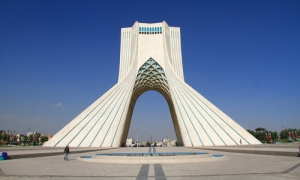Sign up for our free daily newsletter
YOUR PRIVACY - PLEASE READ CAREFULLY DATA PROTECTION STATEMENT
Below we explain how we will communicate with you. We set out how we use your data in our Privacy Policy.
Global City Media, and its associated brands will use the lawful basis of legitimate interests to use
the
contact details you have supplied to contact you regarding our publications, events, training,
reader
research, and other relevant information. We will always give you the option to opt out of our
marketing.
By clicking submit, you confirm that you understand and accept the Terms & Conditions and Privacy Policy
Lawyers for Bank Mellat said yesterday that they were preparing to sue EU governments for damages following the court ruling, according to the Reuters news agency.
Nuclear programme
Reuters reported that Europe’s first instance court ruled the EU had failed to provide sufficient evidence that the bank was linked to Iran’s alleged nuclear power programme. Europe hit the bank with sanctions more than two years ago – but the court has ruled those restrictions should be lifted.
According to a statement from the bank’s law firm, London-based Zaiwalla & Co, the ruling – which the EU could appeal to the Court of Justice – will have far reaching international implications. The firm maintained that the judgment ‘gives a clear message ... that European Institutions do not have the unfettered discretion to impose sanctions on whomsoever they like. This win reminds the institutions that they too are subject to the rule of law, which provides that the imposition of sanctions upon and individual or entity requires evidence’.
No evidence
The firm said the EU sanctions were imposed on the bank on the grounds that it was state owned. However, the firm maintains Tehran owns only 20 per cent of Mellat, and that there is no evidence of ‘any wrongdoing or links with Iran’s nuclear programme on the part of the bank’.
Sarosh Zaiwalla, the law firm’s senior partner, commented said the European court had ‘concluded that fairness and the rule of law are more important than temporary political objectives. Bank Mellat is a private bank, and the Council of the European Union has provided no evidence for justifying its sanctions. Bank Mellat should never have suffered simply because it happens to be based in a country of whose government the EU disapproves’.
Email your news and story ideas to: [email protected]





